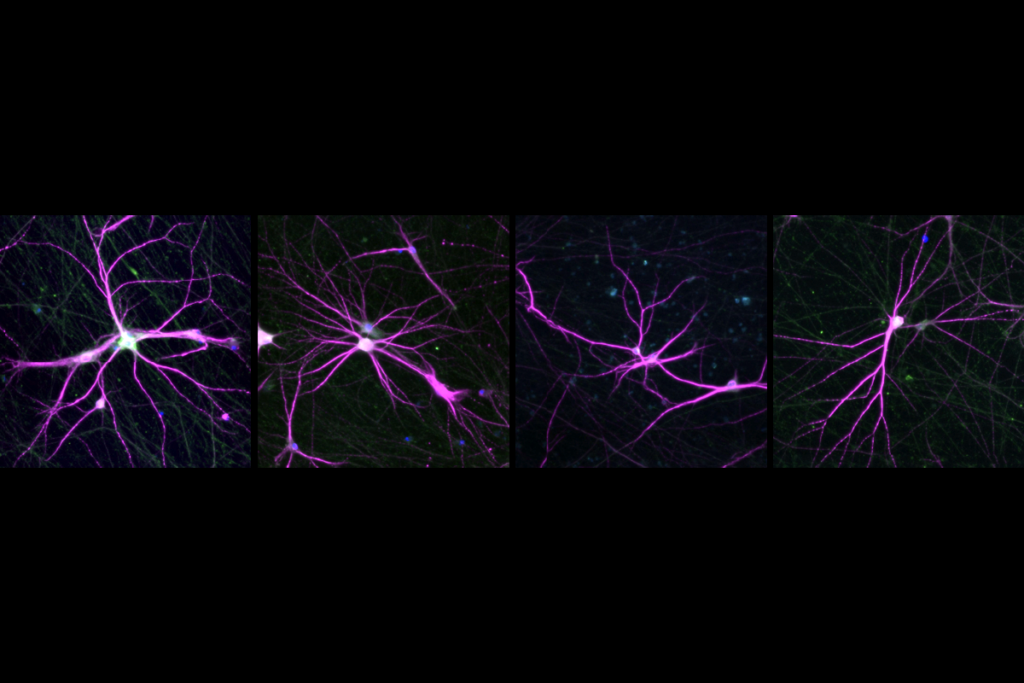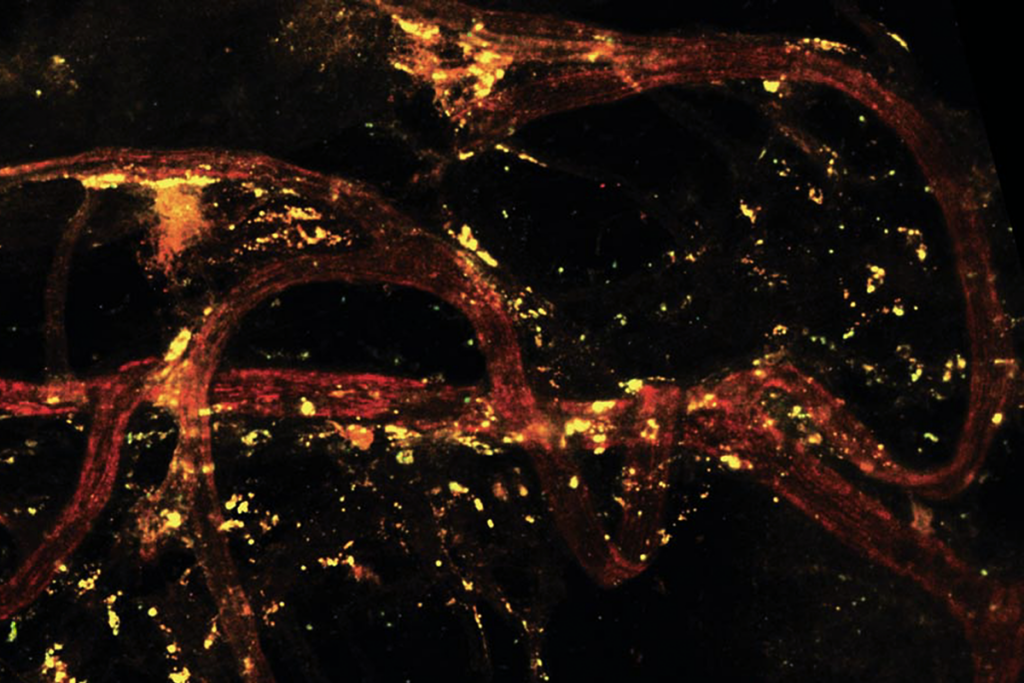Molecular mechanisms: Rett syndrome gene regulates RNA
MeCP2, the gene mutated in people with Rett syndrome, may regulate rates of RNA production in developing neurons, according to a study published 3 August in Stem Cells.
MeCP2, the gene mutated in people with Rett syndrome, may regulate rates of RNA production in developing neurons, according to a study published 3 August in Stem Cells1.
Rett syndrome is an autism-related disorder characterized by intellectual disability and motor and language deficits. MeCP2 controls the expression of thousands of genes. A 2011 study found that the protein binds to sites all over the genome and not just those near certain genes. This suggests that it may modify gene expression by regulating the overall structure of DNA — for example, how tightly DNA is wound.
MeCP2 expression spikes between days three and eight of stem cells’ transformation into neurons, the new study found. During this time, the cells’ nuclei — which contain all their genetic information — increase in size by about one-third.
Cells lacking MeCP2 do not show this increase in nuclear size, the study found. Nuclei in the brains of 1-month-old mice lacking MeCP2 are also smaller than those in controls.
At day eight, MeCP2-deficient neurons have significantly less overall RNA than control neurons do. The bulk of the RNA in cells is made up of cellular machinery, such as ribosomes, which translate genetic messages into proteins. This suggests that lack of MeCP2 could lead to an overall problem with gene expression, the researchers say.
Expressing MeCP2 in the mutant neurons at day 8 restores nuclear size by day 20. This finding echoes those from studies showing that Rett syndrome-like symptoms in adult mice can be reversed by restoring MeCP2 expression.
References:
1: Yazdani M. et al. Stem Cells Epub ahead of print (2012) PubMed
Recommended reading

Cortical structures in infants linked to future language skills; and more
Explore more from The Transmitter
Escaping groupthink: What animals’ behavioral quirks reveal about the brain



